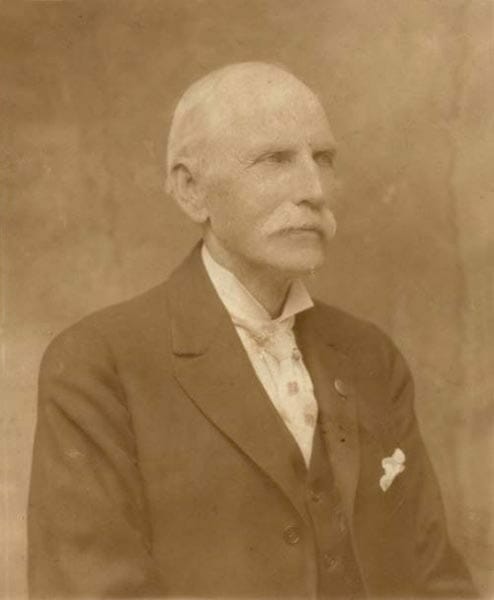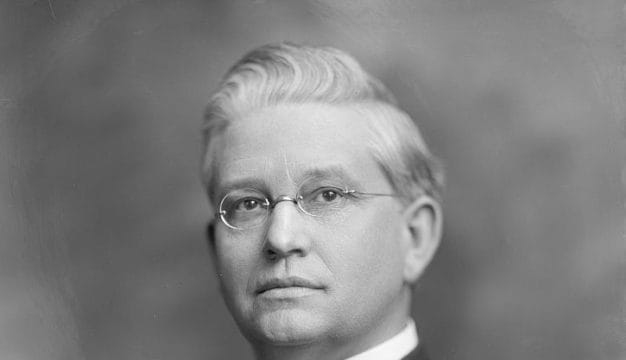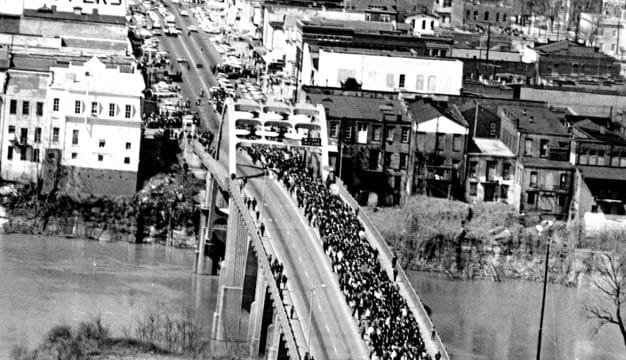Thomas Scales Plowman
 Thomas Scales Plowman
Thomas Scales Plowman (1843-1919) was a congressman, businessman, and civic leader from Talladega, Talladega County. During the Civil War, he served in the Confederate States Army and after the war became prominent in Talladega business and entered politics. His single term as a Democrat representing Alabama’s Fourth District in the U.S House of Representatives was marred with controversy and claims of election fraud, which led to the loss of his congressional seat. At the time of his death, Plowman was serving as the first president of the Bankhead Highway Association.
Thomas Scales Plowman
Thomas Scales Plowman (1843-1919) was a congressman, businessman, and civic leader from Talladega, Talladega County. During the Civil War, he served in the Confederate States Army and after the war became prominent in Talladega business and entered politics. His single term as a Democrat representing Alabama’s Fourth District in the U.S House of Representatives was marred with controversy and claims of election fraud, which led to the loss of his congressional seat. At the time of his death, Plowman was serving as the first president of the Bankhead Highway Association.
The Plowmans were among the earliest settlers of Talladega, which was incorporated in 1835 as the county seat of Talladega County. Thomas was born in Talladega on June 8, 1843, one of five children of George Parish Plowman and Agatha T. Scales. George Plowman moved from Buncombe County, North Carolina, to Talladega in 1834, opened a tannery, and later became a distinguished leader of the community as a member of the state legislature and a county probate judge. Thomas Plowman attended Talladega’s common schools and then Talladega Baptist College prior to the outbreak of the Civil War. After the war, the building was purchased by the American Missionary Union and incorporated into present-day Talladega College. It was renamed “Swayne Hall” for Gen. Wager T. Swayne, assistant commissioner of the Freedman’s Bureau.
Plowman enlisted as a private in Company F, 51st Alabama Cavalry, a unit of partisan rangers under the command of Col. John Tyler Morgan of Selma, Dallas County. The regiment was organized at Oxford, Calhoun County, in August, 1862. It was initially assigned to Brig. Gen. Nathan Bedford Forrest in La Vergne, Tennessee, but was then placed under cavalry general Joseph Wheeler, within Maj. Gen. Braxton Bragg’s Army of the Tennessee. The unit saw fighting in such battles as Murfreesboro (December 1862), Shelbyville (June 1863), Chickamauga (September 1863), Maryville (1864), and Knoxville (fall 1863). Conflicting sources suggest Plowman was either severely injured and removed from service during the Chattanooga campaign of October and November 1863 or during the Battle of Atlanta on July 22, 1864. For the rest of his life, Plowman maintained heavy involvement in the United Confederate Veterans (UCV). As captain of the Talladega Camp of the UCV, Plowman advocated for expanded pensions for Alabama’s Confederate veterans and their widows, organized reunions, and led a voting bloc of veterans.
Following the Civil War, Plowman established himself as a leader in business and politics in Talladega. The town experienced the economic devastation common to many southern towns in the aftermath of the war and carried with it a reputation as a lawless community, but the Plowman family maintained a status of respectability. Thomas Plowman became involved in both agriculture and a mercantile business, served as a city alderman of Ward One, and was a noted member of the First Methodist Church of Talladega. In 1872 or 1873, he married Magnolia Vinton McClellan, who died in early 1874. On January 18, 1873, Talladega mayor J. Morgan Smith resigned, and Plowman was selected by his fellow aldermen as the next mayor. Plowman would serve as mayor until 1878, for a total of three terms. On October 4, 1877, he married Annie Montgomery of Lincoln, Talladega County. The couple had four children.
Throughout the 1880s, Plowman served as a trustee for several businesses and civic organizations, including as a founding board member of the Talladega Warehouse Company, as secretary of the stockholders of the Northeast Alabama A&M Fair, which showcased the region’s livestock and cotton production, and as treasurer of the Southern States Exhibition Company, which promoted commercial development in the New South era. He most prominently held a position as the long-term president of the First National Bank of Talladega. Plowman also continued to build his political career during this time, serving as chairman of the Talladega County Democratic Party executive committee and as a delegate to the Democratic National Convention in 1888, when the party nominated Grover Cleveland for reelection.
In 1894, Plowman was at the center of an election controversy when he was accused of election fraud and yielded his nomination during the primary for Alabama’s Fourth District seat held by Democrat Gaston Robbins. Plowman ran again in 1896 and was elected to the 55th U.S. Congress, unseating in a disputed race Republican William Aldrich, who had taken the seat by successfully contesting the election of Robbins. At that time, the district consisted of Calhoun, Chilton, Cleburne, Dallas, Shelby, and Talladega Counties with a total population of 161,184. After Plowman was sworn into office on March 4, 1897, however, Aldrich challenged the vote, arguing that Plowman’s campaign had used fraudulent ballots and had constrained Republican voter turnout by intimidating Black voters. Following an investigation, the U.S. House of Representatives Elections Committee ruled against Plowman, finding that Plowman’s campaign had fraudulently padded the poll list with fictious voters, committed acts of voter intimidation, and changed votes in Plowman’s favor. The committee then recommended that the congressional seat rightfully belonged to Aldrich. Plowman was removed from office and replaced by Aldrich on February 9, 1898. During his short tenure, Plowman was a member of the minority party and did not participate in many notable votes. He voted against the tariff-raising Dingley Act, which was a key piece of legislation from Pres. William McKinley’s first year in office.
Despite his abbreviated and failed congressional career, Plowman maintained a favorable reputation in Talladega. In 1901, he served as the founding president of Chinnabee Cotton Mill and chaired the Talladega County Jury Commission in 1910 and 1911. The following year, Plowman was elected to the Alabama State Senate, representing the Eighth District. A lifelong friend of highly influential politician John Hollis Bankhead, Plowman served until his death as the first president of the Bankhead Highway Association formed to promote Bankhead’s proposed cross-country highway. Although he died before the project’s completion, he was instrumental in overseeing its early development and construction.
Plowman died in his home in Talladega on July 26, 1919. He was buried in his Confederate uniform in Oak Hill Cemetery in Talladega.



